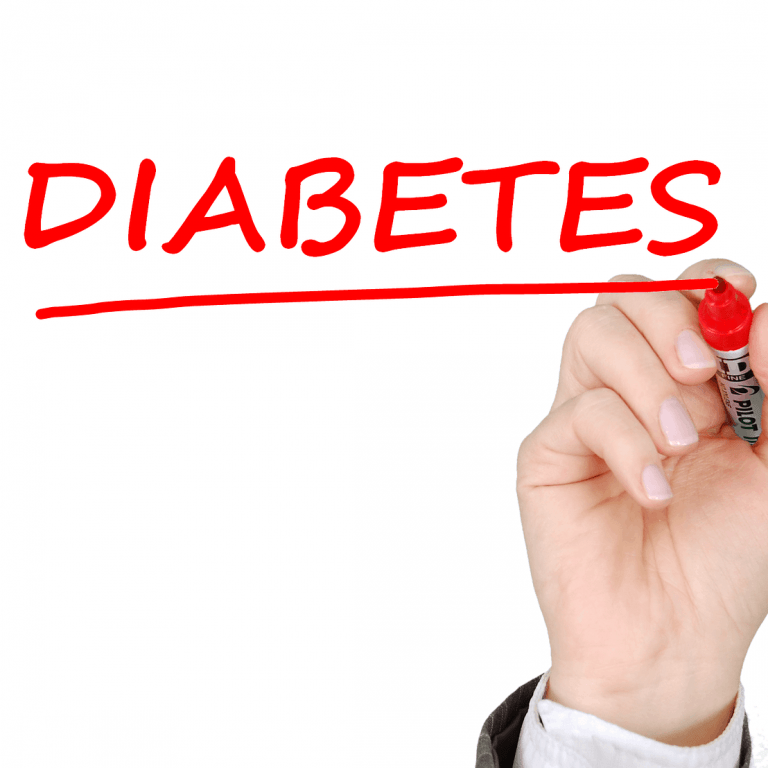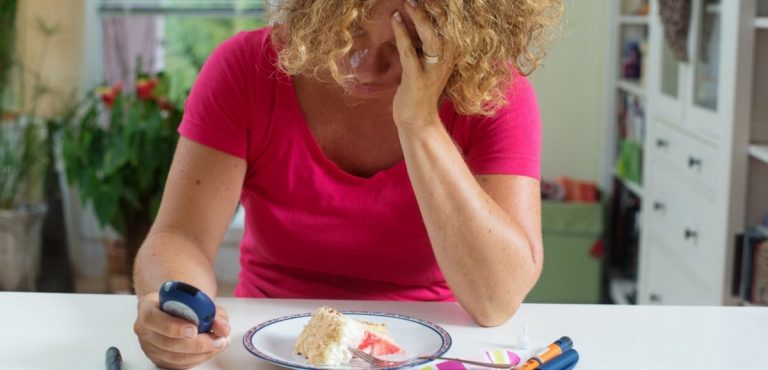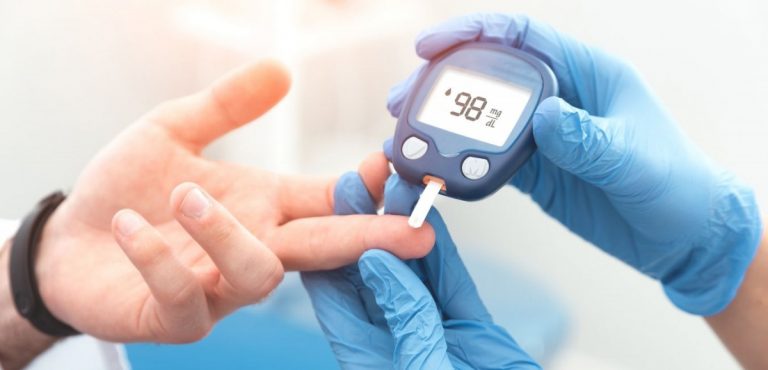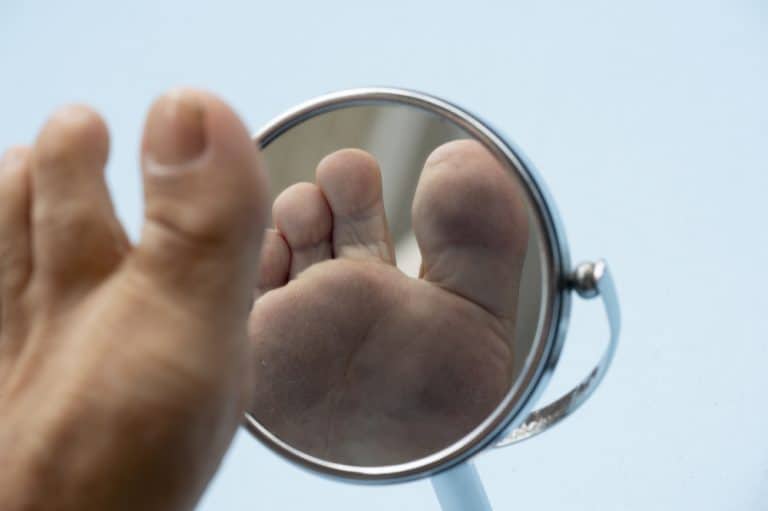Can You Have Hypoglycemia Without Diabetes? (Low Blood Sugar)

If someone with diabetes experiences an episode of severe hypoglycemia (very low blood sugar), they will tell you that it is an extremely miserable and frightening experience. What if you are not a diabetic, can you have hypoglycemia without diabetes?
Hypoglycemia can occur if a person does not have diabetes. The two kinds of non-diabetic hypoglycemia are – Reactive: from having pre-diabetes, stomach surgery, or 2-4 hours after eating a meal. Non-Reactive: after fasting for 8 hours, taking certain medicines, drinking excessive alcohol, diagnosed with certain serious illnesses, or after vigorous exercise.
What Is Hypoglycemia?
Ask any diabetes educator and no doubt, they will have a scary story about severe hypoglycemia.
Hypoglycemia is defined as a drop in blood sugar below 70 mg/dL. At this point, blood glucose has fallen low enough that you will likely need to take corrective action to bring it back to a normal, or within target range.
Reactive vs. Non-Reactive Hypoglycemia
Reactive hypoglycemia is a postprandial hyperglycemia. This means that a dangerously low blood sugar occurs after eating, and it will happen if your body produces too much insulin. These drops in blood sugar are often recurrent and happen within four hours after a meal.
Non-reactive hypoglycemia is also known as a fasting hypoglycemia. This means that the person has not eaten for a period of time. Non-reactive hypoglycemia is usually due to an underlying disease or problem.
It can occur after binge drinking alcohol, after taking certain medications (aspirin, sulfa antibiotics), with certain illnesses (affecting the heart, liver, or kidney), low levels of certain hormones (cortisol, glucagon, epinephrine, growth hormone), or tumors or problems with the pancreas.

Levels of Hypoglycemia
Hypoglycemia can be mild, moderate, or severe. This is categorized into three levels: (hormone.org)
Level 1, or Mild Hyperglycemia
Occurs when a person’s blood glucose is less than 70 mg/dL, but is 54 mg/dL or higher.
Level 2, or Moderate Hyperglycemia
Is defined when a persons blood sugar is less than 54 mg/dL.
Level 3 or Severe Hypoglycemia
When a person’s blood glucose is this low, they are usually unable to function because of changes in their mental and/or physical status. They will often need help from someone else in this case; the blood glucose is below 40 mg/dL.
What Are Symptoms of Hypoglycemia
Throughout any given day, a healthy person’s blood sugar fluctuates slightly depending on when their last period of exercise or last meal was.
Hypoglycemia is a more severe drop in blood glucose. Medically, hypoglycemia is defined as a drop in blood sugar below 70 mg/dL. When your blood sugars levels drop this far, you will likely experience symptoms— even if you have low blood sugar without diabetes.
Each individual may experience symptoms of low blood glucose quite differently from the next. It is not a bad idea to keep a journal if you’re having symptoms on a regular basis. If you have diabetes, a recommendation would be to list your symptoms next to results in your blood glucose log, in the comment section.
If blood glucose levels fall too low, you will need to take action to correct them. If blood sugars drop below 40 mg/dL, another individual will have to intervene to provide treatment.
Symptoms can be mild, which is more common. If a blood sugar remains low, or continues to drop, the brain is being starved of glucose. Insufficient energy to the brain can result in seizures or coma, or very rarely, death. (American Diabetes Association)
Hypoglycemia symptoms include:
- Feeling jittery
- Having body sweats or chills
- Feeling anxious or nervous
- Feeling impatient or irritable
- Experiencing confusion
- Feeling lightheaded or dizzy
- Feeling weak, or lacking energy
- Hunger
- Nausea
- Fast heartbeat (Tachycardia)
- Feeling sleepy
- Color draining from the skin (pale skin)
- Distorted vision (blurry or seeing double)
- Numbness or tingling in the lips and cheeks
- Clumsiness, lack of coordination
- Seizures
- Coma
Hypoglycemia Without Diabetes
Low blood sugar dips — even those low enough to be defined as hypoglycemia — can happen to normal healthy people who do not have diabetes. These low dips in blood sugar are called reactive hypoglycemia. The symptoms are the same, but the cause is more easily identifiable and in reaction to a state of being.
Skipping meals is a common cause for hypoglycemia without diabetes. As your body burns its sugar reserves, they continue to get lower if you don’t refuel with a meal or a snack. Go without eating for long enough, and your blood sugar will get low enough to cause a hypoglycemic episode.

Vigorous exercise — especially on an empty stomach — is another way to burn through your blood sugar reserves and cause non-diabetic postprandial (post-meal) hypoglycemia. Exercise hard and forget to eat afterward and your blood sugar may dip to dangerously low levels. Low blood sugar levels trigger the release of epinephrine (adrenaline), or “fight or flight” response. This can cause symptoms of hypoglycemia such as thumping heart, sweating, tingling, and anxiety. (ADA) As soon as your “rush” dies down after your workout, you may begin to feel poorly.
If you can find a cause for your hypoglycemia, then there’s very little cause to worry. A simple sugary snack or 1/2 cup of juice will make you feel better in a few minutes. However, if you cannot find a cause for your low blood sugar episode, there may be cause to worry.
Hypoglycemia Treatment
Hypoglycemia that occurs frequently may be cause for concern. Severe drops in blood sugar may cause you to stop thinking clearly, shake, or even pass out. Frequent drops in blood sugar are dangerous. They slowly wear away at the body’s organs and nerves and can cause irreversible damage.
If you’re experiencing frequent drops in blood sugar, it is important to see your doctor. A physical examination will quickly pinpoint the problem. You may simply have hypoglycemia without diabetes. You may be able to identify a course of treatment or a hypoglycemia diet to stop scary blood glucose drops from happening so frequently.
Diabetes is not the only common cause of hypoglycemia. Frequent low blood sugar dips may indicate a problem with the liver, kidneys, pancreas or metabolism. Patients recovering from stomach surgery, those who frequently drink alcohol, or those who take certain medications may also experience frequent drops in blood sugar.
You can most certainly have hypoglycemia without diabetes. Healthy bodies run low on fuel at certain times. And while blood sugar drops can be worrisome, there is usually no need for alarm.
If you notice frequent hypoglycemic episodes that occur without periods of fasting or heavy exercise, it is best to see your medical provider. An official diagnosis and treatment of hypoglycemia is the best way to avoid permanent damage. Clinicians will confirm non-diabetic hypoglycemia by verifying symptoms, confirming a low blood sugar, and the symptoms disappear after treatment. At the very least, you’ll have the peace of mind of knowing you’re experiencing hypoglycemia without diabetes or any other significant health problems.

Thanks for stopping by my Dealing With Diabetes blog! My name is LeeAnna.






